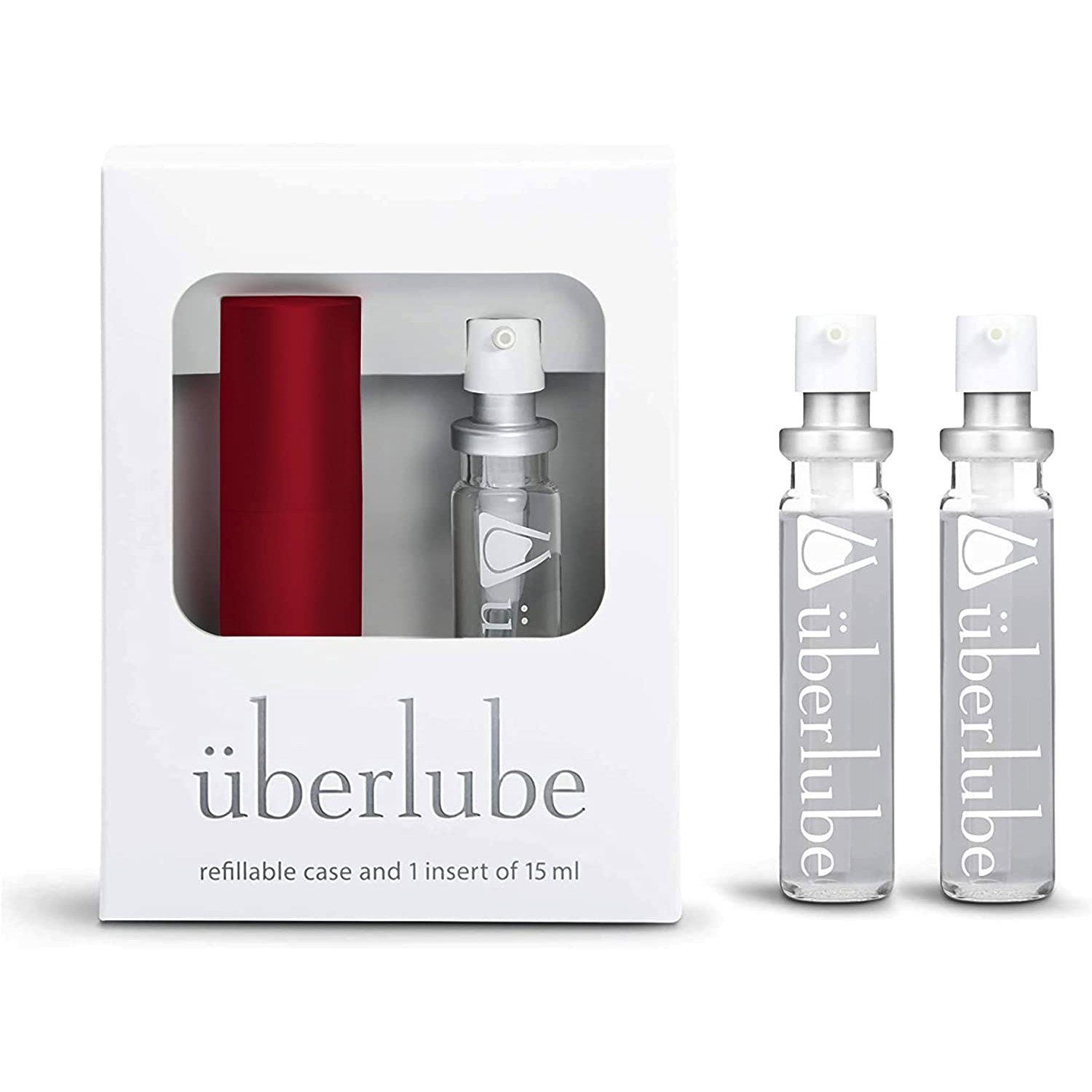Sex During Chemo: A Couple's Guide to Loss of Libido
Cancer diagnosis, chemotherapy, surgery, and other cancer treatments—all of these can impact physical, mental, and emotional health. But here’s one thing oncology healthcare professionals don’t talk about but should definitely include in cancer care plans: all of these changes can affect your sexuality and get in the way of your intimate relationships.
Because it’s rarely talked about, most cancer survivors are at a loss when maintaining a good sex life and sex health during chemotherapy.
Do you want to find out how to resume sexual activity during cancer treatment? Continue reading.
Should You Engage in Sexual Activity During Chemo?
Before we dive into the nitty-gritty of having sex during chemo, we have first to answer this question: is it safe to have sex during chemo?
To answer this, we need to consider a few essential risk factors. These are as follows:
- Type of Cancer
Generally, it’s safe for cancer patients to have sex. However, you need time to heal before engaging in sexual activity if you have undergone treatment for certain cancers involving the urinary tract, genital area, rectum, anus, or breast.
For these types of cancer treatments, your doctor may recommend that you abstain from any sexual activities for a while.
- Chances of Getting Pregnant
Getting pregnant during chemotherapy or after a cancer diagnosis is highly discouraged. This is because the harmful side effects of chemotherapy can affect you and your unborn child.
To minimize the chances of getting pregnant while your cancer treatment is ongoing, your doctor might recommend different birth control methods.
- Pain
When you’re undergoing chemo, sexual intercourse can become quite painful, and there are many reasons why.
It may cause dyspareunia which is a recurring stabbing pain in the genital or pelvic area during intercourse.
Another reason would be vaginal dryness and tightening. The lack of lubrication will make sexual activity less enjoyable.
- Your Sex Drive
The most common female sexual dysfunction associated with chemotherapy is low libido, and many things can cause it.
Some of the best examples are fluctuations in hormone levels, early menopause, poor body image, and low energy levels.
- Risk of Infection
When undergoing chemo, you’re prone to having a low white blood cell count, which increases your risk of developing bacterial or yeast infections. Because of this, you’ll have minimal to no protection against the bacteria that gets introduced into your body during sexual activity.
- Excessive Bleeding
In addition to increased risk of bacterial infection, chemotherapy can also decrease platelet blood counts, If your platelet levels are below 50000, there’s a chance of bleeding and bruising during sexual intercourse.
- Your Partner’s Exposure
Chemotherapy medications may find their way into bodily fluids-- like saliva, vaginal fluids, and semen-- which your partner will be exposed to during sexual intercourse.
Studies show that people who are exposed to chemotherapy medication—but are not undergoing the said treatment-- may experience the following side effects:
- Sore throat
- Rashes
- Chronic cough
- Dizziness
- Hair loss
- Eye irritation
- Allergic reactions
- Miscarriage
- Infertility
While it’s still not clear whether these medications can be passed sexually, it’s better to err on the side of caution and carry out certain precautions when having sex during chemotherapy.
You and Your Partner Want to Have Sex, What Should You Do?
As per one 2014 medical review, sex is generally considered safe during cancer treatment as long as safety precautions are in place.
But with a lot of risks involved in having sex during chemo, you should only engage in any sexual activities if you have:
- A platelet count of more than 50,000. Making sure you don't have low platelet count is important to minimize the risk of bleeding and bruising.
- An absolute neutrophil count (ANC) of at least 500. Platelets play an essential role in preventing excessive bleeding. On the other hand, neutrophils are white blood cells that can help fight off different types of infections. Therefore, if you wish to minimize the risk of the urinary tract or yeast infection, you need to maintain the right ANC before resuming sexual activity.
- Waited for 3 days after your last chemotherapy session before having sex. According to an article written by the American Cancer Society, chemotherapy drugs will stay in the body for around 24 to 48 hours before it’s excreted from your system. Avoid sex, including anal sex or oral sex, within the said period.
- Talked to your healthcare team. You may feel quite uncomfortable talking with your healthcare provider about your sex life, but you must do so if you wish to understand how chemotherapy can affect your sexual health and what you can do about it.
When talking with your cancer care team, you must ask your healthcare provider about:
- the sexual health side effects that you may experience during the cancer treatment
- what you can do to manage the said side effects
- any cancer organizations or support group that can help you maneuver your new normal
- Talked with your partner. Once you’re already aware of what sexual changes you can expect during the cancer treatment, the next step you need to take is to talk about it with your partner.
Let him know what changes he should expect, but more than that, be open with him about any feelings or inhibitions about your condition and how it can affect your sexual intimacy.
In this way, you can both develop ways to adapt to the physical changes and what precautions you need to take.
Make Sexual Activities Safer
You can have vaginal sex while undergoing chemotherapy, but keep in mind that it comes with a few risks. To minimize such risks, here are some of the precautions you need to take:
- Ask your partner to wear barrier protection. Using barrier protection, like a condom, is highly recommended for you and your partner. For you, it can help reduce your chances of getting pregnant or the risk of infection. But, on the other hand, it can help protect your partner from exposure to the chemotherapy drugs in your bodily fluids and vaginal secretions.
- Use contraception to avoid pregnancy. It's important to prevent pregnancy during chemotherapy because both you and your baby will be at risk. Chemotherapy may cause miscarriage or birth defects.
Additionally, pregnancy can also limit the types of tests and cancer treatment options you can have, making it more difficult for your doctors to develop a suitable cancer treatment plan for you.
When preventing pregnancy, don’t use the natural birth methods like pulling out or calendar method. Instead, go for more effective methods like a vaginal ring, birth control pill, patch, or condom,
Just make sure that you talk with your healthcare provider first to ensure that the contraception you will use won’t affect the effectiveness of your medications.
Preventing Pain During Sex
Painful sex is the number one reason most chemo patients are reluctant to have sex with their partners. Here are some ways how you can minimize pain during intercourse:
- To address vaginal dryness, you can increase lubrication to make sex more comfortable and less painful. You can do this by using lubricants and vaginal moisturizers.
- If you’re also dealing with vaginal atrophy, taking vaginal estrogens may also help. However, this is not recommended for people with Estrogen Receptor (ER) positive breast cancer.
- Opt for sex positions where you have more control so you can control the speed and depth of thrusts to a level that’s less painful for you. If other areas of your body also feel sore, look for a position that will not put too much pressure on those areas.
- Perform Kegel exercises regularly so you can control your pelvic floor and vaginal muscles and prevent them from becoming tense during intercourse.
- Try seeking pelvic rehabilitation or pelvic physical therapy sessions so you can learn how to relax your vaginal muscles and manage your level of pain during intercourse.
- Wear a vaginal dilator. This is a rubber or plastic tube inserted into the vagina to enlarge and stretch it so it won’t be too tight to minimize pain during penetration.
Making Sex Pleasurable Again
Aside from pain and dryness, other sexual problems you might encounter during chemotherapy are decreased sensitivity of your clitoris and the inability to reach orgasm fully. Here are some of the ways how you can resolve these issues:
- Use sex toys, like a handheld vibrator, for extra stimulation.
- Find the proper position for your legs. For example, many women reach orgasm faster when their legs are wide open, while others prefer pressing their legs together.
- Explore with your partner to determine which type of touch arouses you the most.
- Relax or tighten your muscles in the vaginal area in time with your breathing or in the rhythm of your thrusts so you can focus on what and how you’re feeling.
If Sex is Not on the Table, What Can You Do to Build Intimacy?
During a cancer treatment, it’s expected that you can’t be in the mood for sex all the time. But there’s one thing we would like you to know: there are other ways to promote sexual intimacy that doesn’t involve sex. Here are some of them:
- Explore other activities that can build intimacy like kissing, cuddling, holding hands, massaging one another or even sharing sexual fantasies.
- Try to reconnect with your partner by spending time with each other, listening to each other’s worries concerns, and validating each other’s feelings.
- Spend your date nights exploring new things because the new experiences will make you closer to each other.
Finding Hope After Breast Cancer
Undergoing radiation therapy, chemotherapy, and breast cancer surgery will most likely affect your sex life and impact your sexuality. It can be traumatic and may even put a strain on your relationship.
What we want you to know is that there’s hope beyond breast cancer—not just for your health but your sexual function as well. A few studies show that sexual desire, satisfaction, and frequency usually return to normal a year or two after the diagnosis and treatment.
But as of now, you must understand that you can’t solve all your sex issues overnight. So there’s also no rush to do so.
Your body has gone through so many changes, and it can affect your emotional well being, mental, and sexual health. That’s understandable.
The best thing that you can do for now is to give yourself time. Don’t force yourself and stick to what you feel is right for your mind and body.
And when you already can, try to make a few small changes over time so you can reclaim your sexuality and you and your partner can bring back the sex life you once had.











